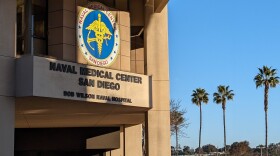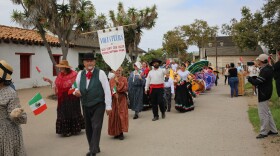The Rev. Terry Jones of Gainesville, Fla., had gotten the world's attention with his vow to burn Islam's holy book on Saturday, the ninth anniversary of the Sept. 11 terrorist attacks.
And despite Secretary of State Hillary Clinton's musings (accompanied by a rueful laugh) that a patriotic media could choose to pay no attention, the provocative act by the pastor of a tiny church would have gotten ample coverage -- more, most agree, than it deserves.
Now it will merit even more coverage: Late Thursday afternoon, Jones announced that he'd given up the Quran-burning plan in favor of flying to New York City. There, Jones said, he will meet with Muslim leaders, who he claimed are amenable to a deal: Don't burn our holy book, and we'll scrap our unpopular proposal to build an Islamic community center and mosque a few blocks from ground zero.
Jones' plans could certainly take more unexpected turns. The imam who has led the effort to build the New York City Islamic center and mosque said in a statement released to CNN that he had not spoken with Jones and was "surprised" by the pastor's announcement. While "willing to extend our hands and build peace and harmony," Feisal Abdul Rauf said, he will not "barter."
Even before this possible denouement-in-the-making, the story of the planned Quran-burning was too far along to ignore. It was being driven, as Clinton said, by a media environment where "anybody with an iPhone, anybody with a blog, can put something out there which is outrageous." And it came at a time when surveys show that Americans hold increasingly unfavorable views of Muslims.
"In this media age, a little pastor in Florida has been setting the agenda for an entire international debate," says Larry Witham, a longtime religion writer who lives in Maryland.
"It’s sad, ironic and funny -- funny because comedy can have a certain tragic feel, too," adds Witham, author of Marketplace of the Gods: How Economics Explains Religion. "But I'm not blaming the media -- the genie is out of the bottle."
International Warnings
Jones, 58, a pistol-toting former hotel manager with a flock of fewer than 50, had left much of the nation's religious community aghast.
He'd prompted President Obama, Secretary of Defense Robert Gates and Gen. David Petraeus, the U.S. commander in Afghanistan, to warn that the burning of any Qurans could put at risk American soldiers fighting wars in predominantly Muslim countries.
Obama, in an interview broadcast Thursday on ABC, characterized the stunt as a "recruitment bonanza for al-Qaida."

An effigy of Jones was burned in Afghanistan. And the FBI has been keeping an eye on the minister, author of Islam Is of the Devil, published last month -- coincidentally just weeks after he began promoting his plan to burn the Quran.
It appears that the "Burn the Koran Day" plan first came to the public's attention through a report on a Jacksonville, Fla., television station in early July. That was followed by a July 19 press release issued by the Council on American-Islamic Relations, according to NPR researchers.
The release, titled "CAIR Seeks Educational Response to 'Burn a Koran Day,' " urged American Muslims to host "educational 'Share the Quran' Ramadan fast-breaking dinners at which copies of Islam's holy text will be distributed to neighbors, public and law enforcement officials and journalists."
The mainstream media began picking up the story largely after the Orlando Sun Sentinel ran a report on July 27, prompting stories in Canada's National Post and Britain's Guardian newspaper. But the event didn't get widespread notice in the U.S. until CNN talked about it on July 29, and interviewed Jones.
The first story by the Associated Press national wire service appears to have run July 28. Within a week, The Washington Post and The New York Times had weighed in, as well as the BBC.
And so it went, ratcheting up interest and becoming front-page news.
At NPR, Executive Editor Dick Meyer says that "our newsroom has been exceedingly concerned with covering what was clearly a publicity-seeking, oddball stunt and giving it too much attention.
"It was, however, already an object of argument, debate and passion," Meyer says. "More important, it was a part of a not-yet-well-understood story."
Adds Meyer: "The occurrence of anti-Islamic rhetoric in political and social culture has been noticeably heightened for months -- why now?"
Anti-Muslim Sentiment
The question of "why now" continues to be asked, but recent surveys confirm that there is, indeed, a rise in anti-Muslim sentiment in America a year away from the 10th anniversary of the Sept. 11 terrorist attacks.
There has also been a parallel increase in the number of those who say they believe that Obama is a Muslim:
-- A Washington Post/ABC News poll released Thursday found that two-thirds of those surveyed object to the location of the planned Islamic community center in New York City, and nearly half said they hold "generally unfavorable opinions of Islam." That's the poll's most negative finding since Oct. 2001.
-- An August poll by the Pew Research Center found that 18 percent of Americans say Obama is a Muslim, up from 11 percent in March 2009. Only one-third of those surveyed said they knew Obama is a Christian.
To many experts, the findings, while distressing, are not all that surprising.
Misgivings Given Voice
Robert Wuthnow, director of Princeton University’s Center for the Study of Religion, says that the debate over the community center/mosque in New York City appeared to "open the floodgates" of underlying feelings of unease with Muslims in America.
"There are a fair number of Americans who believe that Christianity is the only true religion, so they are not too receptive to treating Muslims as equals," says Wuthnow, author most recently of Be Very Afraid: The Cultural Response to Terror, Pandemics, Environmental Devastation, Nuclear Annihilation, and Other Threats.
"There's a pretty strong reservoir of religious misgivings -- to put a kind word on it -- toward Muslims," he says. "What’s happened in the last few weeks is that the subterranean level of misgiving, instead of playing elevator behavior where you pretend the others don't exist, came out of the woodwork."
The New York City Islamic center project, and the Quran-burning, to a lesser degree, have emboldened those who might describe themselves as a "silent majority," to quote President Nixon’s 1969 wartime appeal to conservative law-and-order voters, to speak out boldly.
Some American religion observers, including Witham, find nothing new or particularly surprising at the turn of events, though they have been heightened post-Sept. 11.
Pre-Existing Condition
"There are small enclaves like the pastor's in Florida all over the country," Witham says. "They might preach this thing every Sunday, but nobody knows about it."
And it's always been that way -- and Muslims, obviously, have not always been the target. It has been Protestant versus Catholic, or Protestant versus other Protestants.
"But after 9/11, Americans realized that Muslims are firmly planted in the U.S., that they had money from abroad, and they traditionally meet in large groups -- as collectives," Witham says.
He likened it in some ways to the debate over illegal immigrants, in the sense that the Muslim community is here, and the nation, however reluctant and for whatever reason, "has to deal with them."
"We have a dichotomy in our American history," Witham says. "We're founded on religious pluralism and the free exercise of religion and as a result we have to deal with different fractious groups every day."
What has played out in Florida -- and more particularly in New York City -- contributes to a spike in anti-Muslim sentiment, and similar spikes will continue as those in the Islamic world seek a home in America, with the symbolism that accompanies their presence.
Obama As 'The Other'
The growing and erroneous notion that Obama is a Muslim speaks to attempts by his detractors to portray him as "the other," Princeton's Wuthnow says.
"There is an attempt to make him the other, the alien -- because you can’t say he's alien because he's black," he says.
And about the election year/political aspect of playing on anti-Muslim sentiment?
"It doesn't take some active fanning of the flames," Wuthnow says, "more just kind of sitting back, saying nothing, and letting the problems go where they will."
Says Witham: "There’s a great tradition in American politics called paranoia -- and it always plays, on the left and on the right."
Copyright 2022 NPR. To see more, visit https://www.npr.org. 9(MDAzMjM2NDYzMDEyMzc1Njk5NjAxNzY3OQ001))







